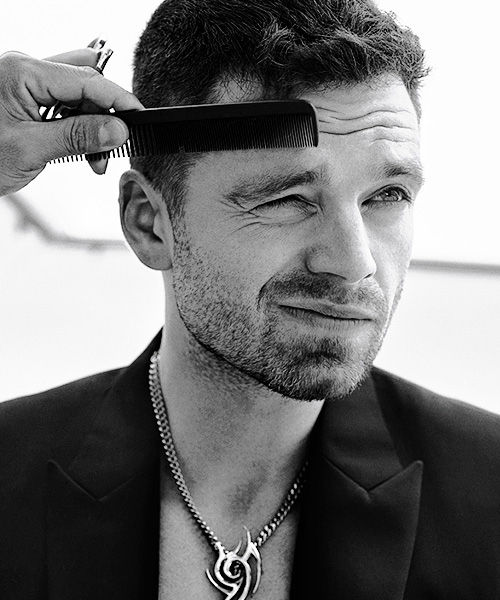I’ve added 1 high quality photo of Sebastian that was published in Randall Slavin’s book ‘We All Want Something Beautiful’ to the gallery. The book was published in 2019 but the image of Sebastian was taken in 2012.


I’ve added 1 high quality photo of Sebastian that was published in Randall Slavin’s book ‘We All Want Something Beautiful’ to the gallery. The book was published in 2019 but the image of Sebastian was taken in 2012.

I’ve added the missing photos of Sebastian filming ‘Sharper’ in New York last year to the gallery.




Apple TV released a teaser trailer for ‘Sharper’ and I’ve added the video below as well as UHQ Promotional Art, Screen Captures, and one new Production Still from the film. In addition read below for the synopsis and release information.
“Sharper” unfolds within the secrets of New York City, from the penthouses of Fifth Avenue to the shadowy corners of Queens. Motivations are suspect and expectations are turned upside down when nothing is as it seems.
Release Date: February 17, 2023 – Select Theaters: February 10, 2023



I’ve added 1 medium quality photos of Sebastian at the The Center for Discovery’s Endowment Campaign Gala on October 22 to the gallery.

I’ve added 10 new/old high quality stills of Sebastian in various films including ‘Captain America: The Winter Soldier’ and ‘The Martian’ in the gallery (some were missing and one is new).




I’ve added 14 new medium quality stills of Sebastian in various films including ‘ Hot Tub Time Machine’, ‘Captain America: The First Avenger’, Destroyer’, The Last Full Measure’, ‘The Education of Charlie Banks’, and ‘The Architect’ in the gallery.




I’ve added 4 new high quality stills of Sebastian as Jack Benjamin from ‘Kings’, I’ve also added 2 new stills of Sebastian as Charles Blackwood from ‘We Have Always Lived in the Castle’ in the gallery.




I’ve added 2 new high quality stills of Sebastian as Johnny from the film ‘Tony n’ Tina’s Wedding’, I’ve also added 1 new behind the scenes still from the film in the gallery.



I’ve added UHQ photos of Sebastian at the NYCC Day 2 to the gallery.



I’ve added more Low HQ photos of the event including a few of Sebastian at the The Walt Disney Company Post Emmy Celebration to the gallery. Thank you to Miss Lily James for the help with these.


